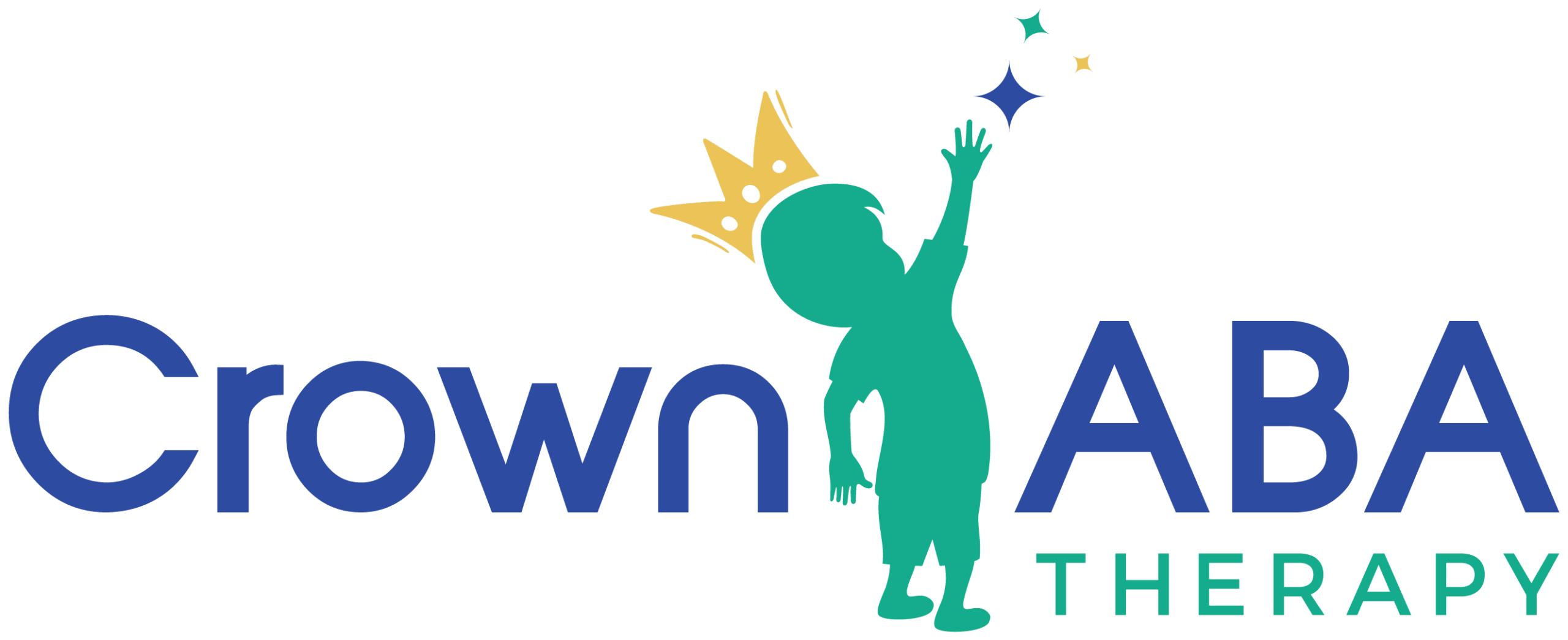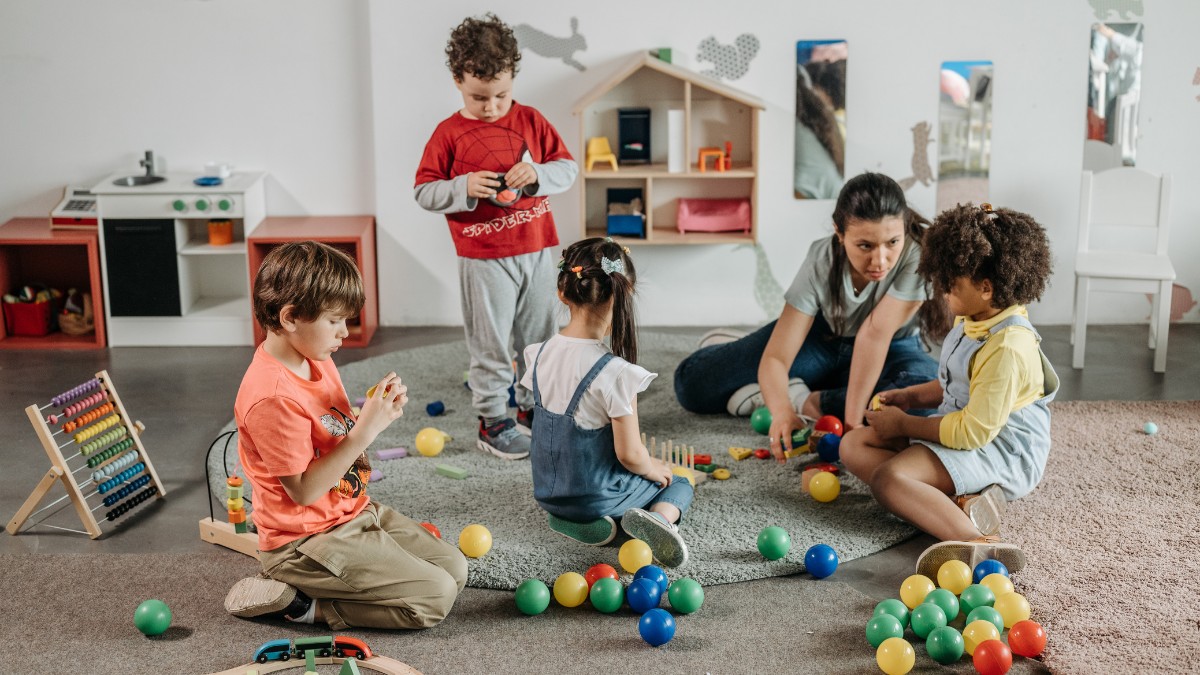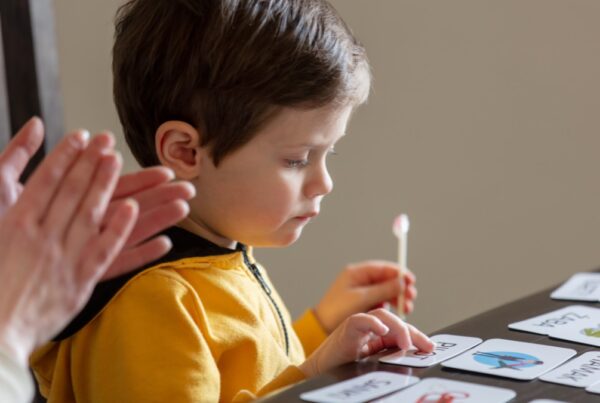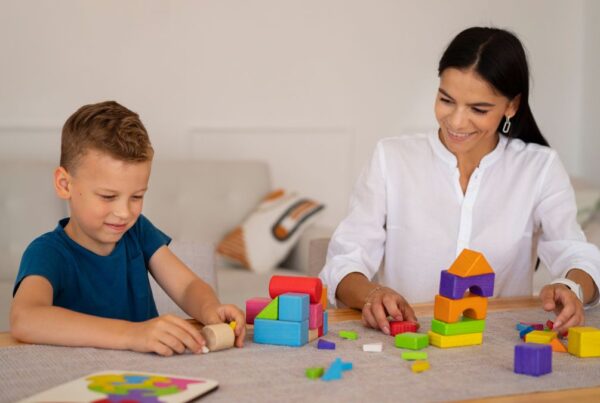Key Points:
- Difficulties with social interaction in autism often manifest as challenges in understanding social cues, making eye contact, and responding to others.
- These challenges can affect friendships, school experiences, and family dynamics.
- ABA therapy provides targeted interventions to address and improve social skills for children with autism.
Social interaction difficulties are one of the most common challenges faced by individuals with autism spectrum disorder (ASD). For many, navigating social situations can feel overwhelming or confusing. These struggles can often lead to feelings of isolation and frustration, as individuals with autism may find it hard to express themselves or respond in ways others expect.
Understanding the root of these challenges is crucial to helping individuals with autism build meaningful social connections and improve their social skills. In this article, we will explore the nature of difficulties with social interaction in autism and offer strategies to support children in overcoming these barriers.

What Are the Difficulties with Social Interaction in Autism?
Difficulties with social interaction in autism can take many forms. Understanding these challenges requires a deeper look at how individuals with autism process social information and respond to others. Some key areas where children with autism may struggle include:
- Difficulty Understanding Social Cues: Social cues like body language, facial expressions, and tone of voice often go unnoticed or misunderstood by children with autism. For example, a raised eyebrow may signal confusion or disapproval for most children, but a child with autism might not interpret this correctly.
- Challenges with Eye Contact: Making and maintaining eye contact is a common challenge for children with autism. This can make it difficult for them to form meaningful connections with peers or adults, as eye contact is a foundational social skill.
- Limited Use of Nonverbal Communication: In addition to difficulty understanding body language, children with autism may also struggle to use nonverbal communication effectively. This can include not gesturing, using facial expressions, or engaging in reciprocal gestures like waving hello or goodbye.
- Difficulty with Turn-Taking and Conversation: Social interaction often involves back-and-forth exchanges. Many children with autism find it difficult to take turns in conversation or to follow the flow of social interaction. They might also dominate conversations or speak without acknowledging others.
- Struggles with Understanding Social Norms: Social norms vary across cultures, settings, and groups. Children with autism may not easily grasp unspoken social rules, such as waiting in line, offering compliments, or knowing when it’s appropriate to speak or remain quiet.
Why Do Children with Autism Face Social Interaction Challenges?
The reasons behind difficulties with social interaction in autism are multi-faceted, stemming from neurological and developmental differences in how the brain processes social information. Here are some factors that contribute to these challenges:
- Neurological Differences: Autism is a neurodevelopmental disorder that affects brain function, particularly in areas involved in social cognition. The brains of children with autism may process sensory input, social information, and emotions differently, making it harder for them to understand and respond to social cues.
- Sensory Sensitivities: Many children with autism have sensory sensitivities, such as heightened sensitivity to noise, light, or touch. These sensitivities can make social situations overwhelming, leading to anxiety or withdrawal, which further complicates social interaction.
- Difficulty with Theory of Mind: Children with autism often experience challenges with Theory of Mind (ToM), the ability to understand that others have thoughts, feelings, and perspectives different from their own. Without this ability, it can be difficult for them to predict how others will react or understand their emotions.
- Communication Delays: Language development can be delayed in children with autism. This delay affects both verbal communication and the ability to understand complex social language. Even if a child can speak, they may have difficulty with abstract language, metaphors, or sarcasm, which are often crucial for social interactions.
Can Social Interaction Challenges Be Improved for Children with Autism?
Yes, difficulties with social interaction in autism can be addressed and improved with the right interventions. Behavioral therapies like ABA (Applied Behavior Analysis) can teach children social skills in a structured and supportive way. Key interventions may include:
- Teaching Social Skills Through Role-Playing: Role-playing social situations, such as greeting a friend or asking to join a game, helps children practice appropriate social responses in a safe environment.
- Social Stories and Visual Supports: Social stories are short narratives that describe social situations and the appropriate behavior for those situations. Visual supports, such as picture schedules or charts, can also help children with autism understand social rules and expectations.
- Peer Modeling: Peer modeling involves using typically developing children to model appropriate social behaviors. This allows children with autism to observe and learn social interaction skills in real time.
- Structured Play Dates: Organized play dates with peers help children practice social skills in a controlled environment. These play sessions often focus on turn-taking, sharing, and communication.
- Positive Reinforcement: Reinforcing appropriate social behavior with praise, rewards, or tokens encourages children with autism to continue practicing these skills.
Parents play a crucial role in helping children with autism improve their social interaction skills. By being proactive and involved, they can create an environment that supports learning and growth. Here are some effective ways to support your child at home:

Partner with Crown ABA for Targeted Support
If your child is struggling with difficulties with social interaction in autism, targeted interventions like ABA therapy can make a significant difference. Crown ABA specializes in providing personalized ABA therapy in MD, helping children with autism build essential social skills, improve communication, and reduce frustration.
Our team works closely with families in Maryland and surrounding areas to create customized programs that address social challenges and foster lasting success. Through fun, engaging, and structured therapy sessions, your child can learn the skills they need to thrive in social settings.
Contact Crown ABA today to find out how our dedicated team can support your child’s social development journey.





